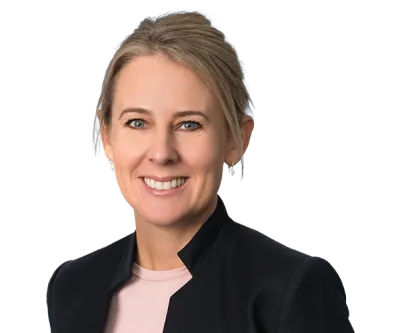A fine balance: new access regulations and privacy regulations for beneficial ownership information in the Cayman Islands
Legislation in the Cayman Islands concerning beneficial ownership information continues to develop at a steady pace and the latest developments are particularly noteworthy. The Parliament of the Cayman Islands has recently approved the Beneficial Ownership Transparency (Legitimate Interest Access) Regulations, 2024, (the "Access Regulations") and the Beneficial Ownership Transparency (Access Restriction) Regulations, 2024, (the "Privacy Regulations").
Broadly speaking the Access Regulations provide for certain members of the public to obtain access to specific beneficial ownership information ("BO Information") on the register of beneficial owners (the "Register") if they can demonstrate that they have a "legitimate interest" in the information. Meanwhile, the Privacy Regulations will allow registerable beneficial owners (each a "Beneficial Owner") and others to apply to prevent public access from being granted to their details on the Register, in circumstances where this could place them in danger.
The Privacy Regulations are currently in force and the Access Regulations come into force on 28 February 2025. This will provide a window of time for applications to be submitted under the Privacy Regulations before public access "goes live".
What information will be accessible?
For individuals the following information will be accessible under the Access Regulations:
- name;
- country of residence;
- nationality;
- month or year of birth or both; and
- nature of control over the entity that falls within the scope of the New BO Regime (the "Legal Person").
Who can make an application to obtain BO Information?
Members of the public may be deemed by the Competent Authority for Beneficial Ownership (the "Authority") to have a "legitimate interest" under the Access Regulations if:
- They are persons:
- engaged in journalism (which is very broadly defined as "the work of collecting, writing, and publishing news, stories and articles in newspapers, magazines and websites or preparing news to be broadcast");
- engaged in academic research;
- acting on behalf of a civil society organization aimed at combating money laundering or terrorist financing ("Civil Society Category"); or
- seeking that information in the context of a potential or actual business relationship or transaction with the Legal Person ("Business Deal") about whom that information is sought ("Deal Category"); and
- The information is required to prevent, detect, investigate, combat or prosecute money laundering or terrorist financing (the "Specified Purposes").
These are very broad categories and, while the requirement to show that the BO Information is required for the Specified Purposes in order to deter speculative "fishing expeditions", the Authority will likely have an onerous task in terms of assessing the legitimacy of many applications.
How are applications for access to beneficial ownership information processed?
An application must be made to the Authority via an electronic portal in respect of the relevant Legal Person or Legal Persons. It will not be possible to search for particular individuals. A fee of KYD 30 will be payable for searching for one Legal Person and KYD 100 for searching for multiple Legal Persons. In order to search for multiple Legal Persons in the same application the applicant must be alleging that all of the Legal Persons are involved together in money laundering or terrorist financing.
All applicants will need to provide:
- identification; and
- evidence that they are requesting the BO Information for the Specified Purposes.
In addition:
- for journalists, academics and those in the Civil Society Category evidence of the applicant's credentials will also be required; and alternatively
- for those in the Deal Category the following evidence will be required:
- evidence the applicant seeks the BO Information in the context of a Business Deal with the Legal Person; and
- details of the nature of the Business Deal.
How are decisions on applications communicated?
If approved the Authority will release the BO Information to the applicant without notice to the persons to whom the BO Information concerns (and such persons will not be informed of any searches for information about them). If declined the Authority will provide its reasons to the applicant.
How can the disclosure of BO Information under the Access Regulations be prevented
Under the Privacy Regulations it is possible to make an application to avoid BO Information being disclosed to any member of the public in accordance with the Access Regulations ("Public Disclosure"), provided that certain conditions are satisfied (discussed below).
Who can apply to prevent BO Information being made available?
An application under the Privacy Regulations (a "Privacy Application") can be made by:
- the Beneficial Owner (the "Beneficial Owner") of a Legal Person;
- a person proposing to become the Beneficial Owner of a Legal Person; or
- a senior managing official identified as a contact person for the Legal Person,
(each a "Privacy Applicant").
Grounds for making a Privacy Application
A Privacy Applicant can make a Privacy Application on the grounds that they reasonably believe that Public Disclosure would place the Privacy Applicant or a member of their household (each a "Household Member") at serious risk of:
- kidnapping;
- extortion;
- violence;
- intimidation; or
- any similar danger or serious harm.
Process for Privacy Applications
A Privacy Application is required to be made in a prescribed form and submitted to the Authority.
The form requires the Privacy Applicant to provide their identification details (along with proof of their identity) and those of the Legal Person. In addition, they are required to supply details of whether the Privacy Applicant has been:
- imprisoned for a term of more than five years; and / or
- convicted of a dishonesty offence.
It is mandatory to provide evidence in support of the Privacy Application, along with a fee of KYD 1,000. The Privacy Application will then be considered by the Authority, and it is possible that additional information will be requested to assist with its assessment. In addition, the Authority is empowered to make enquiries with various third-party bodies and law enforcement agencies to verify the evidence provided in support of the Privacy Application.
During the period in which a Privacy Application is being considered by the Authority Public Disclosure of the relevant BO Information will be prevented. The Privacy Application itself will not be subject to Public Disclosure.
Decisions on Privacy Applications
If the Privacy Application is approved (the "Privacy Approval") the relevant BO Information will be protected from Public Disclosure. If refused the Authority must provide an explanation.
A Privacy Approval will remain in force for three years from the date upon which it is granted, unless:
- the Privacy Applicant or Household Member to whom the Privacy Approval was granted notifies the Authority that the Privacy Approval is no longer required; or
- the Privacy Approval is revoked by the Authority.
Revocation of Privacy Approval by the Authority
A Privacy Approval may be revoked if the Authority becomes aware:
- at a Privacy Applicant or Household Member:
- has been or is being imprisoned for a term of more than five years;
- has been convicted of a dishonesty offence; or
- is or has been subject to a sanctions application in the Cayman Islands; or
- of additional information that if known at the time would have resulted in the Privacy Application being refused.
Before a decision is made the Authority will notify the Applicant and the Household Member and invite them to make representations on why the Privacy Approval should not be revoked within a 28-day period.
If the Privacy Approval is revoked the BO Information will become subject to Public Disclosure under the Access Regulations.
Commentary
The Access Regulations attempts to offer a balance between Public Disclosure and the appropriate protection of an affected individual's rights to privacy by ensuring that there is a legitimate interest in information being disclosed. At this early stage, it remains to be seen just how regularly the new regulations will be used and how stringent the Authority will be in its assessment of Applications. Guidance is expected to be released shortly.
We anticipate that the Privacy Regulations will be an important reference point for trustees and private clients in particular. While the Privacy Regulations do add a layer of protection for those deemed to be at serious risk of harm by disclosure of BO Information, the processes provided for in the Privacy Regulations do require proactive efforts in order to prevent access via the Access Regulations. Given the timeframes, and the potentially very negative consequences of access, any individuals falling within this category should be live to the potential issues and consider submitting a Privacy Application for themselves and (if applicable) any affected Household Members as soon as possible.



